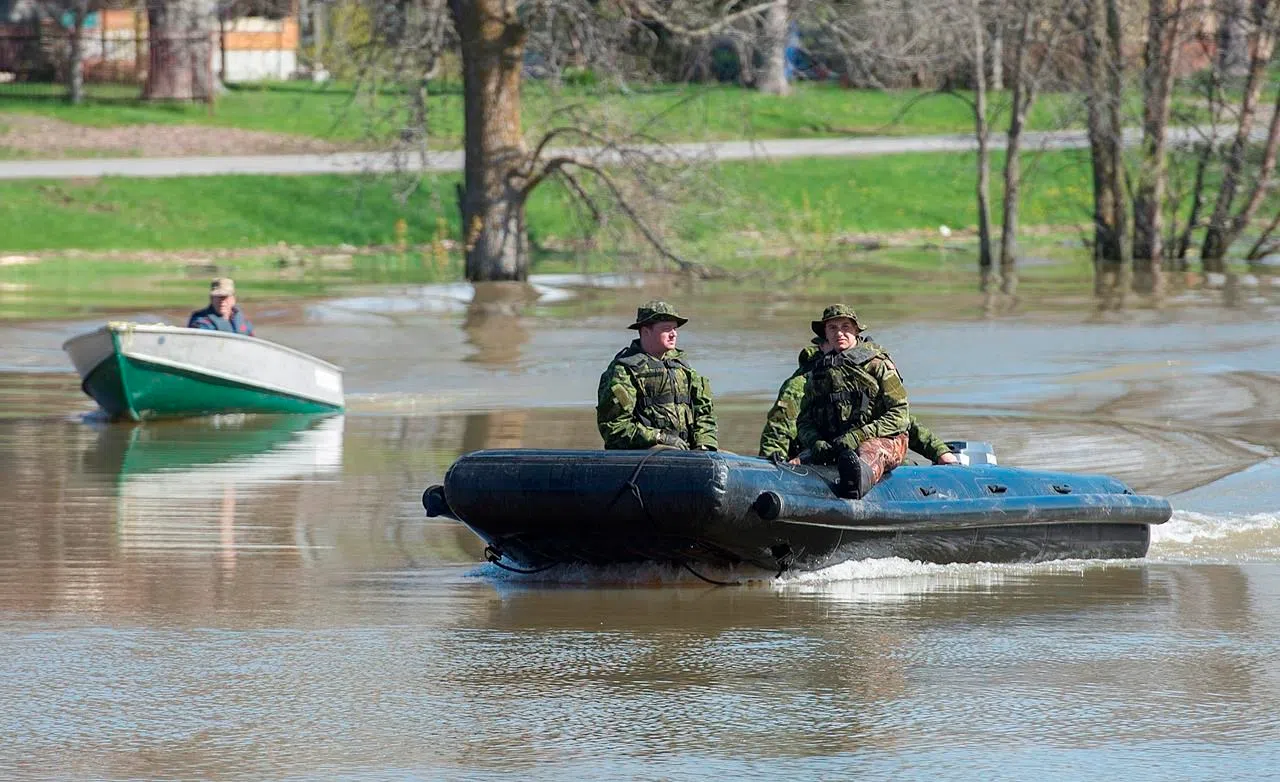
Hundreds of extra troops sent to Quebec as feds warn about more floods in B.C.
OTTAWA — The military is deploying hundreds of additional soldiers to help with flood-relief efforts in Quebec, even as the federal government warns about more flooding in British Columbia.
The extra help to Quebec comes as water levels have started to recede in many parts of the province, where more than 2,700 people were forced from their homes over the past week.
Updating reporters on the federal government’s response to the flooding, Defence Minister Harjit Sajjan said 470 army reservists from Ottawa, Toronto and London were expected to be in Quebec by the end of the day.
The reservists were expected to join — and in some cases replace — the approximately 1,800 military personnel already on the ground helping fill sandbags, evacuating residents and providing other help.


